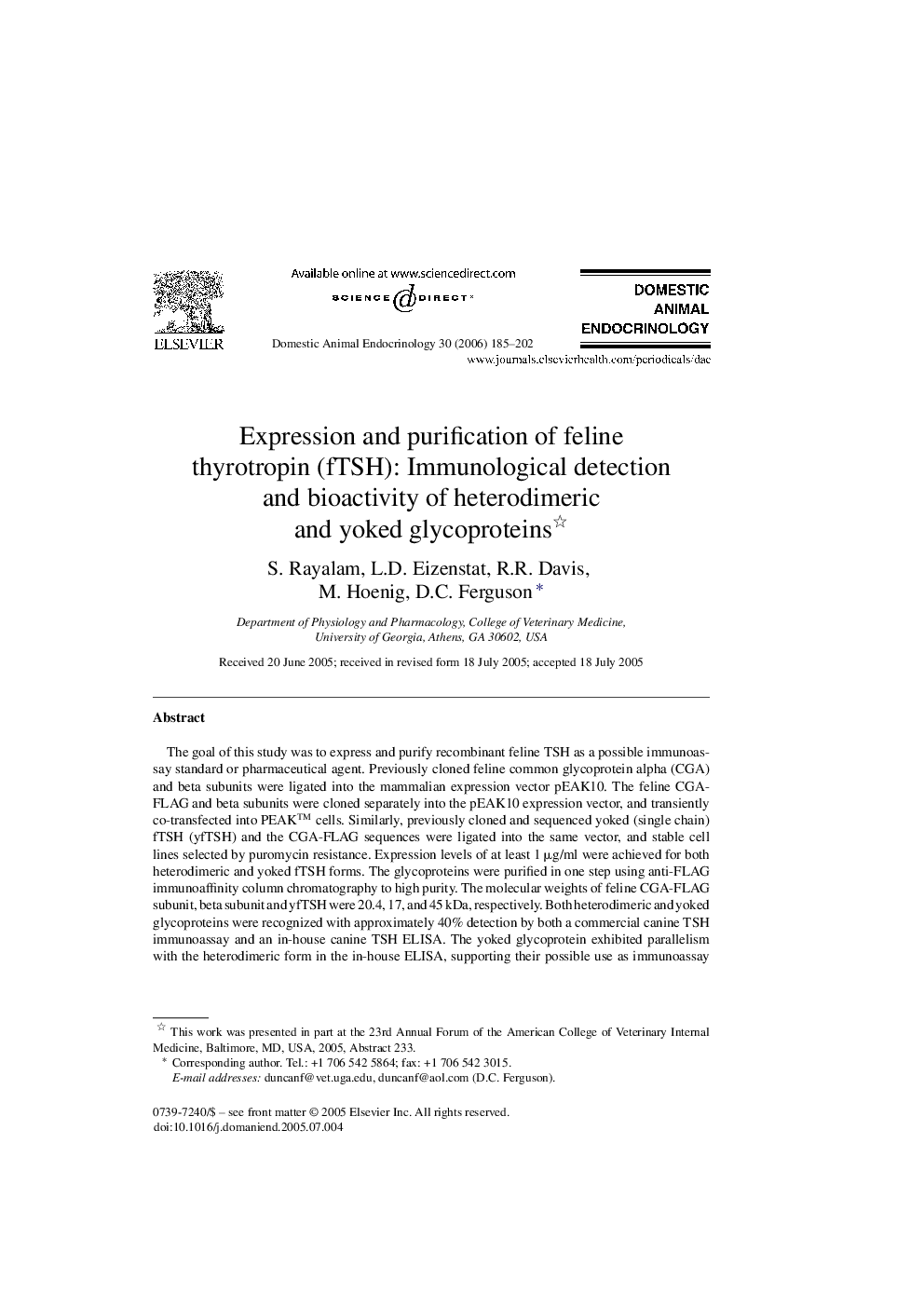| Article ID | Journal | Published Year | Pages | File Type |
|---|---|---|---|---|
| 2394113 | Domestic Animal Endocrinology | 2006 | 18 Pages |
The goal of this study was to express and purify recombinant feline TSH as a possible immunoassay standard or pharmaceutical agent. Previously cloned feline common glycoprotein alpha (CGA) and beta subunits were ligated into the mammalian expression vector pEAK10. The feline CGA-FLAG and beta subunits were cloned separately into the pEAK10 expression vector, and transiently co-transfected into PEAK™ cells. Similarly, previously cloned and sequenced yoked (single chain) fTSH (yfTSH) and the CGA-FLAG sequences were ligated into the same vector, and stable cell lines selected by puromycin resistance. Expression levels of at least 1 μg/ml were achieved for both heterodimeric and yoked fTSH forms. The glycoproteins were purified in one step using anti-FLAG immunoaffinity column chromatography to high purity. The molecular weights of feline CGA-FLAG subunit, beta subunit and yfTSH were 20.4, 17, and 45 kDa, respectively. Both heterodimeric and yoked glycoproteins were recognized with approximately 40% detection by both a commercial canine TSH immunoassay and an in-house canine TSH ELISA. The yoked glycoprotein exhibited parallelism with the heterodimeric form in the in-house ELISA, supporting their possible use as immunoassay standards. In bioactivity assays, the heterodimeric and yoked forms of fTSH were 12.5 and 3.4% as potent as pituitary source bovine TSH at displacing 125I-bTSH and 45 and 24% as potent in stimulating adenylate cyclase activity in human TSH receptor-expressing JP09 cells. However, in addition to reduced receptor binding affinity, the recombinant glycohormones produced a reduced maximal effect at maximal concentration (Emax) suggesting the possibility of the recombinant glycohormone constructs acting as partial agonists at the human TSH receptor.
